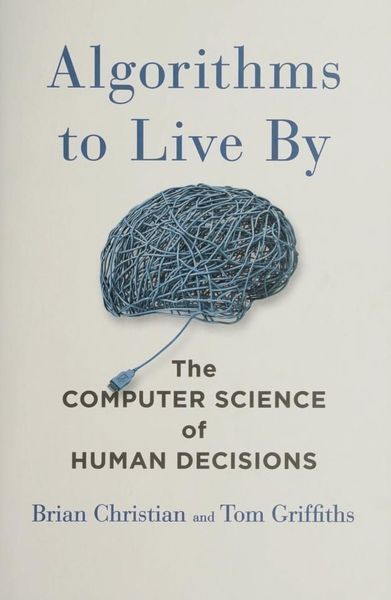
Algorithms to Live By The Computer Science of Human Decisions
A fascinating exploration of how insights from computer algorithms can be applied to our everyday lives, helping to solve common decision-making problems and illuminate the workings of the human mind All our lives are constrained by limited space and time, limits that give rise to a particular set of problems. What should we do, or leave undone, in a day or a lifetime? How much messiness should we accept? What balance of new activities and familiar favorites is the most fulfilling? These may seem like uniquely human quandaries, but they are not: computers, too, face the same constraints, so computer scientists have been grappling with their version of such issues for decades. And the solutions they've found have much to teach us. In a dazzlingly interdisciplinary work, acclaimed author Brian Christian and cognitive scientist Tom Griffiths show how the algorithms used by computers can also untangle very human questions. They explain how to have better hunches and when to leave things to chance, how to deal with overwhelming choices and how best to connect with others. From finding a spouse to finding a parking spot, from organizing one's inbox to understanding the workings of memory, Algorithms to Live By transforms the wisdom of computer science into strategies for human living.
Reviews
Timeo Williams@timeowilliams
Asim Gasimzade@asim
Jaiden Ratti@jaiden
Ashlyn@demonxore
Anthony@amorriscode
Thomas DeCelle@tdecelle
Rohini Anandamurugan@rohini-anandamurugan
Swastik@swastik
Hrishikesh Bhaskaran@stultus
Ryan Angel@turnanewpage
Kyle S@kylesq9
Jeni Enjaian@jenienjaian
Rebeca Keren Nuñez@rebecanunez
Lance Willett@lancewillett
Sameer Vasta@vasta
Lucas Coelho@coelholucas
Luca Conti@lucaconti
Dani@erudani
Ilia Markov@ilia
Isidora Vatali@eleaza
Melih Kizilsu@kizilsum
Anna M. Siem@anioleo
Lucas Melin@lucasmelin
Rebeca Keren Nuñez@rebecanunez